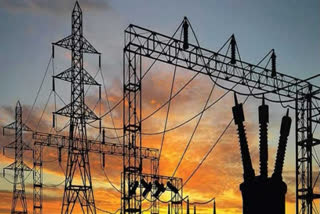New Delhi:The Union government’s new electricity bill is expected to fundamentally alter the country’s electricity sector as it seeks to assign more power to the Centre in fixing the tariff, enforcing the contracts and regulating the subsidy structure prevalent in the states that have led to weak finances of several state power distribution companies.
The draft of Electricity Amendment Bill 2020 has evoked a strong response from several states like Tamil Nadu while it enjoys support from some other quarters including former power secretary P Uma Shankar and economist and author Mohan Guruswamy.
The new bill will assign more power to the Centre in recommending the names of office bearers of key regulatory and appellate bodies in the power sector, both at the centre and state level.
“States can argue that their powers have been taken away but it is also true that states have delayed the appointments so much so that the State Electricity Regulatory Commission became dysfunctional,” said former power secretary P Uma Shankar.
The former bureaucrat, who was at the helm of policymaking for the country’s power sector during the second term of Prime Minister Dr Manmohan Singh, also questioned the selection criteria at the state level.
“The commissions have not been functioning independently, for example, if the tariffs were to be raised then they always looked at the state bureaucracy,” said P Uma Shankar adding, "Probably that is why the Central government wants to recommend the names."
He said under the proposed law, appointments will take place in a timely manner and new office bearers will be able to work in a far more neutral and freer manner.
“It will have a positive impact on the tariff revisions because it is one of the biggest problems of the state discoms. The neutrality of the person will be far more,” he noted.
However, constitutional experts like former Supreme Court justice Madan B Lokur caution against the concentration of too much power in the hands of the selection committee.
Section 78 of the Bill proposes the constitution of a selection committee for recommending the names of members of the appellate tribunal, central and state commissions, joint commissions and also the names of members of the proposed contract enforcement authority.
The five-member body will have a sitting or retired judge of the Supreme Court of India who will be nominated by the Chief Justice of India, two secretaries from the Union government, and also chief secretaries from two states.
“The recent controversies in the appointment of judges suggest that the recommendations of the Selection Committee will also cause controversies unless a clear procedure is announced,” said Lokur.
“It is not clear if the recommendations of the Selection Committee will always be accepted and if not, what are the grounds for rejection,” he told ETV Bharat.
New contract enforcement authority (ECEA)
One of the main features of the proposed bill is to create a new authority to enforce agreements in the electricity sector. However, experts like former power secretary P Uma Shankar, are not convinced.
“One more authority will lead to a multiplicity of authority. I don't think it is required,” he said, explaining that if the enforcement of contracts in the power sector was an issue then this could have been addressed by tweaking the present act.
